 Most of us are familiar with the saying “green with envy.” It originated in the works of William Shakespeare who repeatedly warned his readers/audience about the negative impact of “green-eyed jealousy” that exists in all people. More than 500 years later, how is it rearing its head amongst today’s youth?
Most of us are familiar with the saying “green with envy.” It originated in the works of William Shakespeare who repeatedly warned his readers/audience about the negative impact of “green-eyed jealousy” that exists in all people. More than 500 years later, how is it rearing its head amongst today’s youth?
It is interesting that well before Shakespeare was writing in the late1500s, virtually all of the world religions had identified envy or jealousy as a notable vice. In the Christian tradition it was the first of the seven deadly sins. The perils of envy are the focus of the Fifth Hadith in the teachings of the Muslim prophet Mohammed. The Buddhist tradition identifies the three poisons and the Jewish sages and the Talmud holy book identify envy as a human affliction or character flaw which can be diminished but never fully stamped out; it’s an unavoidable part of the human condition. In essence, envy is about having too much attachment to things or the personal qualities of others.
I was struck by an article written by a recent high school graduate in the UK who looked at envy today. Lisa was writing about the impact of social media on her generation. She noted that many of her friends are constantly seeking “likes” for their Facebook postings, yet many admit to having few close friends. Another of her friends had large numbers of Instagram followers but had actually been buying them. She admitted that her social media feeds were full of carefully-staged photos, only showing people at their best in life. Lisa writes, “It’s easy to envy people when all you see is a tiny spectrum of their life – a small window displaying only the narrative they wish you to see. It seems like anything too personal or hard to discuss or unglamorous, slips out of the photo stream.”
So how about real-life issues like problems with friends, personal heartbreaks, family issues, financial crises, illness or physical challenges? Or how about the daily hard slogging of studying, completing assignments and projects and the challenge of just balancing it all?
Reminder to today’s teens: that unglamorous reality is real life, but nobody posts that stuff. Let’s face it, much of social media is essentially a glistening shiny world of people’s “perfect fake lives.”
This is not to say our students shouldn’t be on social media. The capacity to share is actually wonderful. But teenagers are naturally quite susceptible to peer pressure, what sociologists call the immense “power of the tribe.” If they allow it, there will be a constant sense of pressure to reach for more and more likes on each updated profile, on each new Instagram post, encouraging new readers to follow their every success.
So my advice is for teens to try to be more realistic and avoid feeding the green monster of envy. If our students think their lives are humdrum, especially in wintery February, they shouldn’t worry. No fake glistening world required; our students are just fine the way they are. I see them in action and their teachers and coaches remind me of that every day.
Envy or jealousy will never magically disappear because we want it to. But it can be buried with a simple antidote: invest in others and their success. The more one does this, the more one connects with the essence of being human, and jealousy will be diminished because feet will be firmly planted in reality. That’s a timeless truth that will never change no matter how you project it to the world. – Chris Shannon, Headmaster

 My time here in Thailand is almost up and I simply can’t believe it!
My time here in Thailand is almost up and I simply can’t believe it!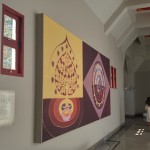


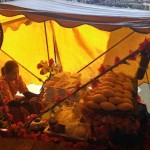

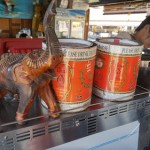

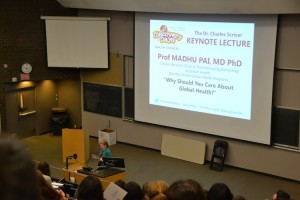 Last week, LCC students attended Discovery Days in Health Sciences at McGill University. The Discovery Days are one-day workshops that offer secondary students an opportunity to learn about the many career options in medicine and the health sciences. Here is what two students had to say about the experience:
Last week, LCC students attended Discovery Days in Health Sciences at McGill University. The Discovery Days are one-day workshops that offer secondary students an opportunity to learn about the many career options in medicine and the health sciences. Here is what two students had to say about the experience: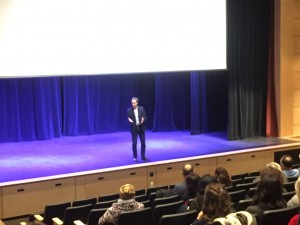 Clinical psychologist, Dr. Alex Russell visited LCC a few weeks ago and offered many important messages. He works with struggling adolescents and is the author of the book Drop the Worry Ball: Parenting in the Age of Entitlement. Let’s consider some of the key takeaways from his presentation.
Clinical psychologist, Dr. Alex Russell visited LCC a few weeks ago and offered many important messages. He works with struggling adolescents and is the author of the book Drop the Worry Ball: Parenting in the Age of Entitlement. Let’s consider some of the key takeaways from his presentation.